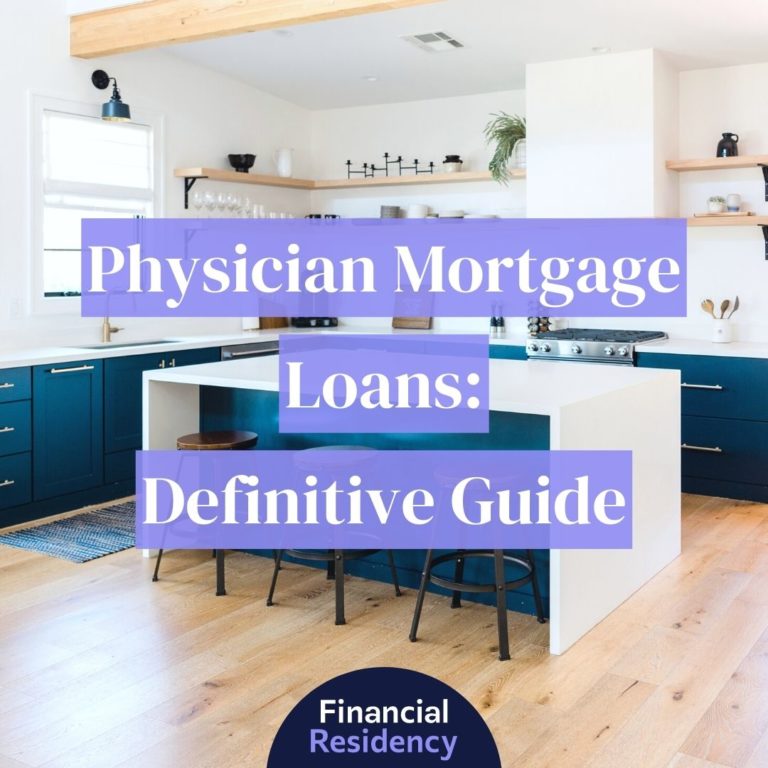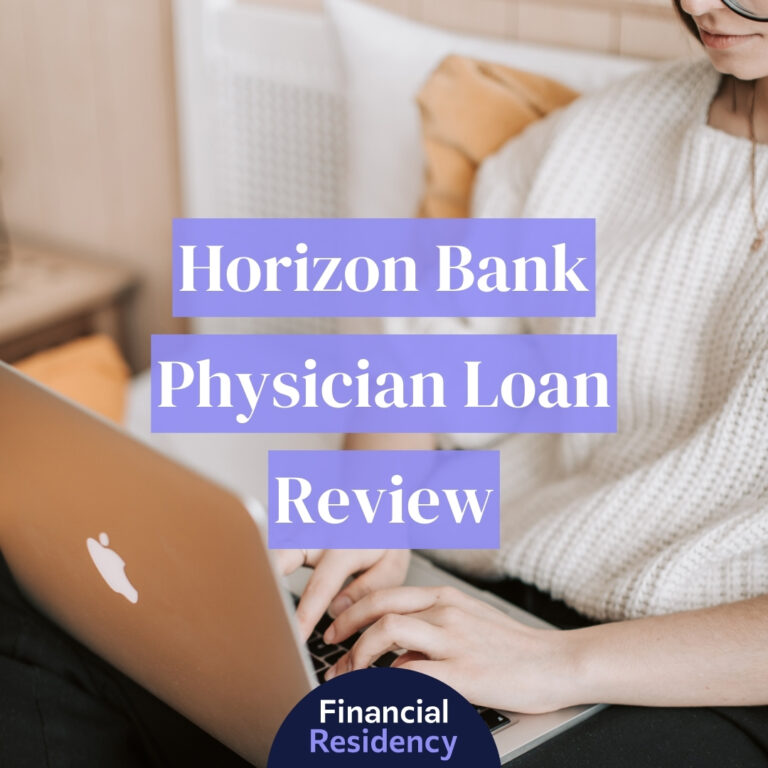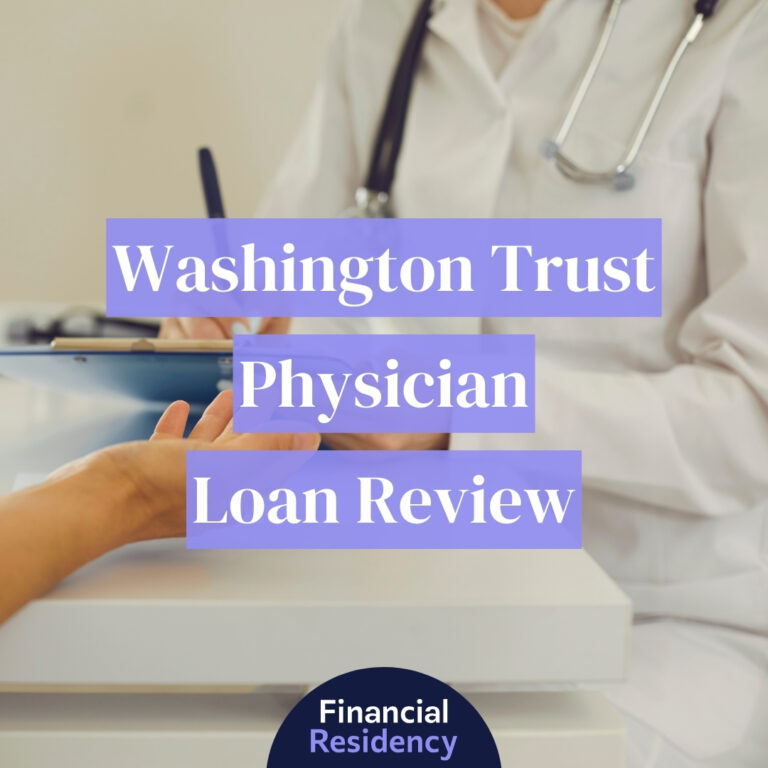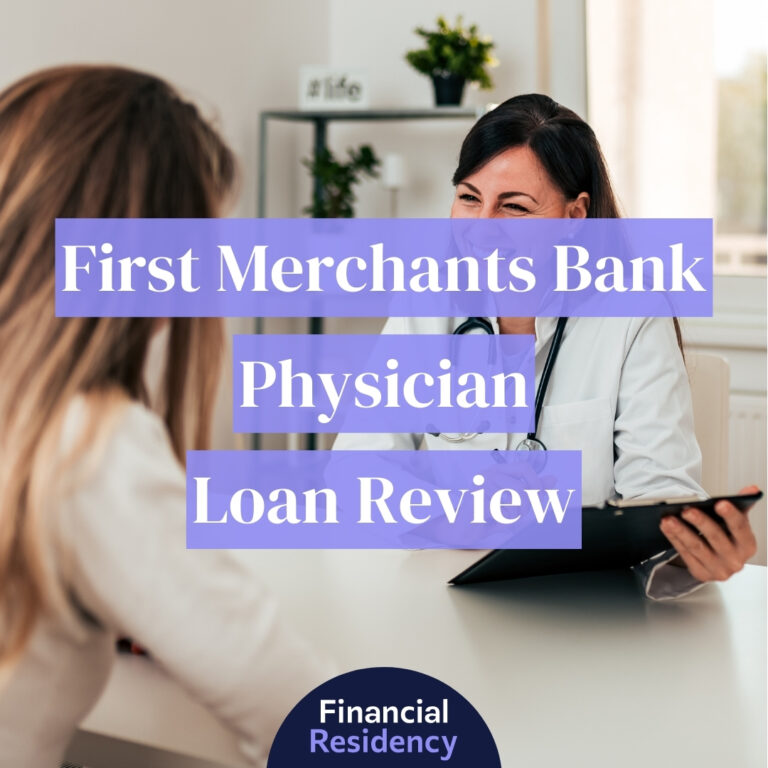Getting connected with a knowledgeable lender can help you understand how a physician mortgage loan can work for you.
There are over 15,000 physicians practicing in Colorado, but the state still faces a shortage of primary care physicians to serve its 5.8 million residents.
There are plenty of opportunities to live near big cities, including Denver, Boulder, or Colorado Springs, or you could settle in rural Colorado where the primary care physician shortage is the worst.
Whether you’re relocating to Colorado for your residency, opening a new practice, or simply moving to a scenic corner of the world to continue your career in medicine, a physician loan can make homeownership a reality.
If you’re ready to get started finding the best doctor home loan in Colorado, read up on the lenders ready to help you move forward with the loan process.
9 Best Colorado Physician Home Loan Lenders
Here are the top physician mortgage loan lenders in CO:
- BMO Bank
- Citizens Bank
- Evolve Bank & Trust
- First National Bank of Omaha
- Huntington Bank
- KeyBank
- UMB Bank
- Union Bank
- US Bank
Discover The Best Lenders in Colorado Answer just a few questions about your career, where you're buying, and how much you want to borrow. Our service will then show you the exact programs you're eligible for from vetted physician loan specialists who will guide you through every step of the process – obligation-free!
1. BMO Bank
- BBB Grade: A+
- JD Power Score: 805
BMO Bank’s Physicians’ Mortgage Program is available in the standard fixed-rate and adjustable-rate financing options. Borrowers are not required to have demonstrated income history, but they will need proof of future income, through an employment contract or residency program.
Private mortgage insurance is not required, which can save borrowers thousands on mortgage payments over the loan term.
BMO Bank (formerly BMO Harris Bank) provides three financing options for Colorado residents:
- 100% financing up to $1 million
- 95% financing for $1 – $1.5 million
- 90% financing for $1.5 – $2 million
The following degrees are included in the Physicians’ Mortgage Program:
- Doctors of Medicine (MD)
- Doctors of Dental Surgery (DDS)
- Doctors of Dental Medicine (DMD)
- Doctors of Osteopathic Medicine (DO)
Residents and fellows are eligible for the program. Loans can be used to purchase or refinance duplexes, single-family homes, condominiums, and townhouses.
Borrowers who hold a checking account with the bank are eligible for a closing cost discount of up to $500 when they enroll in AutoPay.
Learn More:
2. Citizens Bank
- BBB Grade: A+
- JD Power Score: 818
Citizens Bank has a variety of products, including home loans, designed for healthcare professionals. The Citizens Doctor Loan program provides up to 95% financing to physicians who purchase or refinance their primary residence.
The Citizens Doctor Loan program has restrictions on the type of property borrowers can purchase. Unlike other loan programs, this loan can only be used to purchase a unit in a planned unit development or a townhouse–not a detached single-family home.
Borrowers can put a 5% down payment on loans up to $850,000. Loans up to $1,000,000 require an 11% down payment.
However, licensed residents, fellows, and interns have a maximum loan amount of $650,000. Unlicensed medical professionals are capped at $400,000.
Current residents or doctors within 10 years of completing their residency with the following degrees are accepted into the loan program:
- MDs
- DDSs
- DMDs
- DOs
Fixed and adjustable-rate mortgages up to 30 years are available. All Citizen Doctor Loan products don’t require PMI.
Learn More:
3. Evolve Bank & Trust
- BBB Grade: A+
- JD Power Score: N/A
Evolve Bank & Trust’s physician loan program provides financing for the purchase of a home, but its larger Physicians Capital program can be tailored to support the financial goals of its borrowers.
Evolve Bank & Trust is open to more healthcare professions than the typical physician loan program. The following degrees are eligible:
- Medical Doctors
- Dentists
- Dental Surgeons
- Veterinarians
- Pharmacists (RPH)
- Nurse Anesthetists
- Nurse Practitioners (NP)
- Physician’s Assistants (PA)
- Optometrists (OD)
- Chiropractors (DC)
- Podiatrists (DPM)
The program also has a high loan limit and no PMI requirement. Borrows have the following financing options:
- 0% down payment on loans up to $1,000,000
- 5% down payment on loans up to $1,250,000
- 10% down payment on loans up to $1,500,000
- 15% down payment on loans up to $2,000,000
Borrowers who have not yet started work are eligible for the program as long as they will start work within 90 days of closing.
Learn More:
4. First National Bank of Omaha (FNBO)
- BBB Grade: A+
- JD Power Score: 847
First National Bank of Omaha (FNBO) offers its Physician’s Mortgage Loan to medical doctors and high-earning professionals. Its list of qualifying degrees is longer than many other similar programs.
The following degrees qualify:
- MD
- DO
- DDS
- DMD
- DVM
- CRNA
- NP
- PA
- CPA
- CFA
- JD
Like other lenders on this list, FNBO requires a minimum credit score of 720. Fixed and adjustable rate loan products are available depending on the borrower’s needs.
The program will provide 100% financing on loans up to $850,000, 95% financing on loans up to $1 million, and 90% financing on loans up to $1.5 million.
Borrowers are encouraged to contact a loan officer for more information.
Learn More:
5. Huntington Bank
- BBB Grade: A+
- JD Power Score: 821
Huntington Bank offers specialized home loan programs for graduating medical students, residents, and practicing physicians. Borrowers are matched with a specialized mortgage officer who will design a program that meets their needs.
Doctors, dentists, and veterinarians are included in the program, but they’ll be required to show proof of income history, cash reserves, or an active employment contract. The exact required reserves will depend on the loan amount.
Financing will be determined based on creditworthiness, but there are a few standard limitations. Huntington Bank will provide up to 100% financing on loans up to $1 million. It will provide 95% financing on loans up to $1.25 million and it will provide up to 90% financing on loans up to $2 million.
Loans can be used to purchase or refinance a primary residence.
Learn More:
6. KeyBank
- BBB Grade: A+
- JD Power Score: 798
KeyBank’s medical professional mortgage program is a personalized service. Doctors and dentists can borrow up to $3.5 million, which is the highest loan amount on this list. While the program doesn’t require doctors to be within 10 years of their career to qualify, retired physicians aren’t eligible.
The program will provide 100% financing on loans up to $1 million, 95% financing on loans up to $1.5 million, and 85% financing on loans up to $2 million.
The underwriting process is flexible and it will exclude all deferred student loan debt. PMI is not required. Fixed and adjustable-rate products are available.
Unlike other physician loans, KeyBank’s loans can be used to purchase or refinance primary residences and second homes. Attached and detached single-family homes, condominiums, and townhouses are included in the program.
Borrowers with a KeyBank checking or savings account save 0.25% on closing costs up to $1,000.
Learn More:
7. UMB Bank
- BBB Grade: A+
- JD Power Score: 791
UMB Bank’s physician mortgage loans are designed for doctors, dentists, optometrists, pharmacists, and attorneys.
The program doesn’t require PMI and mortgages are available in standard fixed-rate and adjustable-rate options up to 30 years.
Interns, fellows, and medical residents are limited to 90% financing options. Attending physicians can secure loans up to $1.5 million with 0-5% down payments. However, 100% financing is only available on loans up to $1 million.
Unlike many physician loan programs, UMB Bank does not impose an age limit on practicing physicians. Qualified degrees can access the program at any stage in their careers.
The lender may also provide first-time home buyer grants or down payment assistance for applicants who meet certain requirements.
Learn More:
8. Union Bank
- BBB Grade: A-
- JD Power Score: 811
Union Bank’s physician loan program is unique in the amount of financing it provides.
While 90% financing is available on loans up to $ 1 million and 95% financing is available on loans up to $1,500,000, the program will provide financing up to $5 million for qualified borrowers.
PMI requirements are waived for all loan amounts. Medical doctors and doctors of osteopathy are the only professions included.
Student loan debt deferred for 12 months or more isn’t factored into debt-to-income calculations.
Borrowers will be required to open a Union Bank checking or savings account and enroll in AutoPay for their monthly payments.
Physician mortgage programs are available in fixed, adjustable, and interest-only options. The Doctor Loan program may only be used to purchase or rate/term refinance a single-family home, condominium, or townhouse. It also needs to be the borrower’s primary residence.
Learn More:
9. US Bank
- BBB Grade: B+
- JD Power Score: 807
US Bank is a worthwhile consideration for any medical doctor, doctor of osteopathy, or lawyer with a 710 credit score or higher.
Borrowers are eligible for loans up to $1 million with just a 5% down payment. Loans up to $1.5 million will require a 10% down payment. Borrowers who can afford a 15% down payment can qualify for loan amounts up to $2 million. The program will provide a maximum loan amount of $2.5 million.
Loans may not be used for construction. Borrowers who hold a US Bank platinum checking or savings account will receive a 0.25% lender credit up to $1,000.
The monthly DTI ratio will use 2% of deferred student loan debt or the income-driven repayment amount, which is significantly more flexible than the DTI calculators used by conventional loan programs.
Learn More:
How Physician Mortgage Loans Work in Colorado
Physician mortgage loans are designed for medical doctors and other high-earning professionals who may want to purchase homes but won’t meet the requirements for a conventional mortgage.
According to Dan Brown, a loan originator with Envoy Mortgage, physician loan programs “take into account future job and income, lower current liquidity and in certain cases, and give exceptions for things like debt-to-income ratios.”
These considerations make the underwriting process more flexible for early career doctors who don’t have a 20% down payment or the income history other loan programs look for. Primary mortgage insurance isn’t required either, which can keep monthly payments lower than comparable programs.
Medical residents who are relocating to continue their training can purchase a home with proof of an employment contract, even if they haven’t started working yet.
Due to their high earning potential, medical doctors, lawyers, and other qualified professionals can access large loan amounts outside the limitations set by the Federal Housing Finance Agency.
For this reason, medical professionals interested in physician loan programs will have to take an honest inventory of their current finances to ensure they’re choosing a house and a loan they can reasonably afford.
From the perspective of the lender, physician loans attract business from doctors who are less likely to default on their loans and highly likely to earn significant income over their careers.
If you’re interested in a physician loan, we recommend talking with a local lender so you can find a financing option tailored to your needs.
Pros & Cons
Comparing the pros and cons of physician mortgage loans in Colorado can help you make an informed decision.
Pros:
- PMI not required: Physician mortgage loans in Colorado do not require private mortgage insurance (PMI).
- DTI is considered differently: Underwriters for doctor loan programs will have more lenient debt-to-income ratio thresholds.
- Low down payment options: Many financing loan programs will provide 85-100% financing for medical doctors, dentists, and other high earners.
- Refinance: Doctor mortgage loans can be used to refinance an existing property.
- Buy before you move: Physician loan programs will often accept employment contracts as proof of earning potential as long as you start work within 90 days of closing.
Cons:
- Primary residence requirement: Some physician loan programs will exclude homes that aren’t your primary residence.
- Adjustable-rate mortgage: Many physician mortgage loans have variable interest, which means you can have higher interest rates throughout your loan term compared to a fixed-rate mortgage.
- May not be used for condos: Some physician loan programs won’t provide financing for condos or townhomes.
Frequently Asked Questions
What credit score do you need for a physician loan in Colorado?
You will need a credit score of around 700 for a physician loan in Colorado. Some physician loan programs will allow scores as low as 660 if you agree to a higher down payment. Credit scores above 700 will often qualify for 100% financing.
In general, the higher your credit score the more favorable your interest rates will be.
Do physician loans have higher interest rates in Colorado?
Yes, physician loans will often have higher interest rates in Colorado to offset the low down payment. Physician loan programs will also have variable interest rate options, which means the interest will fluctuate throughout your loan term.
Your loan officer will be able to walk you through your mortgage options and ensure that your monthly payments are within your budget.
What is the maximum loan amount for physician loans in Colorado?
The maximum loan amount for physician loans in Colorado will vary depending on your lender and loan type. Some physician loan programs will provide financing up to $3.5 million.
Physician loans are not subject to the loan caps set by the Federal Housing Finance Agency. In Colorado, the maximum loan amount for conventional loans is $726,200. All physician mortgages above this loan amount will be considered jumbo loans.
What is the approval process for a physician loan?
The approval process for a physician loan isn’t too dissimilar from conventional mortgages, but the underwriters may be more lenient.
You will be asked to provide the following documentation:
- Proof of a qualifying degree
- Explanation of student loan debt and other items in your debt-to-income ratio
- Recent pay stubs or two years of tax records
- Bank statements for cash reserves (such as savings, checking, and retirement accounts)
- Employment contract
What is the difference between a physician loan and conventional loan?
The main difference between a physician loan and a conventional loan is the demographic the products are designed for.
Physician loans are specially designed for medical doctors and other high earners who wouldn’t qualify for conventional loan options due to high student loan debt and limited employment history.
Physician loans have more lenient requirements and low down payment options. They don’t require PMI.
Conventional loans are open to the general public and they’ll typically require a down payment. If you put less than 20% down, you will be required to pay primary mortgage insurance.
Who is a Physician Loan in Colorado Best For?
Physician loans aren’t one-size-fits-all so you’ll always want to consult with your loan officer to find the mortgage program that meets your needs.
With that said, physician loans may be the best loan option for some medical professionals in Colorado.
If any of the below examples resonate with you, a physician loan may be a worthwhile consideration as you navigate the home-buying process.
1. Medical school graduates with a high DTI ratio
Doctors can graduate from medical school with more than $300,000 in student loan debt, excluding undergraduate loans and credit cards.
Conventional loan programs will typically want to see DTI ratios around 28%. Even FHA loans require DTI ratios of less than 43% to qualify.
Physician loan programs will not only calculate DTI with more lenient terms but its lenders will often consider DTI ratios up to 50%.
2. Early career physicians with income-driven repayment plans or deferment
Student loan debt can be excluded from DTI calculations in some physician loan programs.
Depending on the program, underwriting may completely exclude deferred student loan debt or use a fraction of the total amount when calculating DTI.
The income-driven repayment amount will typically be used for people with these plans.
Physician loans are best for early-career medical professionals because the terms will typically stipulate the borrower be within 10 years of graduating medical school to qualify.
3. First-time homebuyers with a qualifying degree
Physician loans aren’t always exclusive to medical doctors. Dentists, veterinarians, lawyers, podiatrists, and accountants will be included in some physician home loans.
Loan officers will often guide first-time homebuyers through the entire home-buying process by matching them with a mortgage program that best fits their needs.
If you are a high-earning professional interested in purchasing a new home, you should inquire about physician loans.
4. Existing homeowners interested in refinancing
Physician loans can be used to refinance existing properties. In many cases, the loan terms will require the property to be your primary residence or have limitations on cash-out refinancing.
If the interest rate has dropped since you purchased your home or you want to cash out your home equity, a physician loan can help you refinance to a more favorable monthly payment.
Moving to a Different State?
Click on the state you are moving to and get the best physician mortgage loan lenders in that state:
Learn more about physician home loans.




